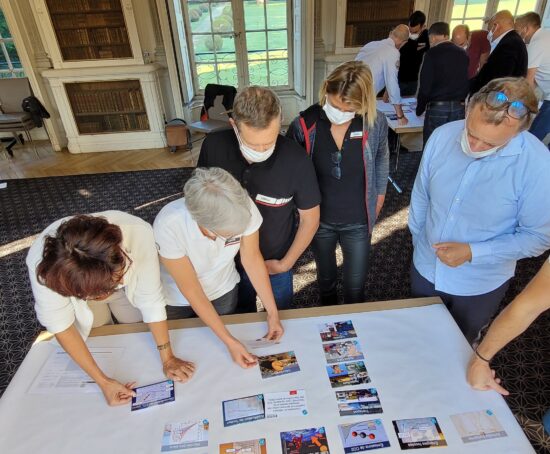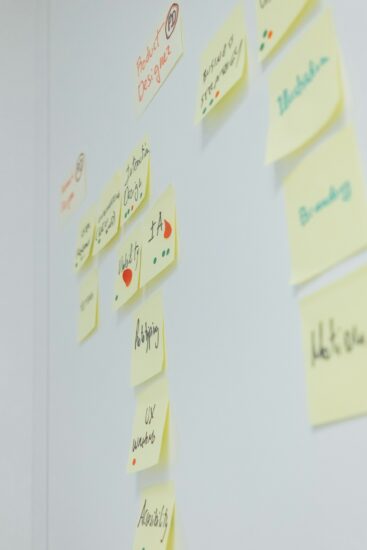
Structuring and leading a value analysis process
You would like to launch Value Analysis (VA) projects, as well as to train people to participate in a VA group.
Accueil » Trainings » Ecological Transition training » 2tonnes workshop: identifying levers for action
The 2tonnes workshop invites participants to explore the future as a team. The aim of this experiment is to design a transition scenario compatible with the objective of limiting global temperature rise to +1.5°C. To achieve this, greenhouse gas emissions need to be limited to 2tonnes per year per person by 2050.(2tCO2e/year is the amount of greenhouse gases emitted per person in a CO2-neutral world according to the 2015 Paris agreements at COP21).
To provide a systemic understanding of the issues at stake, the workshop takes into account the individual and collective dimensions of the subject, without forgetting the role of influence, a key issue in the transformation of society.
Aimed at both novices and experts on the subject of climate change, this is a real serious game, designed to be played and debated together, so that everyone can have fun, express their opinions and decide on their own course of action.
The 2tonnes workshop can encourage companies (and their employees) to calculate their carbon footprint. It also enables companies to mobilize their employees around their low-carbon strategy.
The 2tonnes workshop enables individuals and companies alike to take action, by identifying carbon impact items and the levers for action (individual and collective) to reduce our carbon footprint and limit the consequences of climate change.
As a result, the 2tonne workshop enables :
At the end of the 2tonnes workshop, participants will be able to :

The 2-tonne workshop enables :
All employees!
None
7h (1 day)
On-site at the company’s premises or at the training organization’s premises
Inter-company (1 or more people per company) or intra-company
Inter / Presential : 435€ NET tax / participant
Inter / Distanciel : 188€ NET tax / participant
Intra / Presential : 2243€ NET tax / group
Intra / Distanciel : 1500€ NET tax / group
Face-to-face training with a Connection Leadership trainer
Pedagogical tools used :
Teaching method: This workshop-based training course is a fun way of visualizing the carbon footprint of individual and collective actions.
An interactive, immersive experience thanks to a web platform and an innovative teaching model for learning through exploration, testing and visualization!
All the concepts are covered through exercises designed to ensure a smooth progression and facilitate the acquisition of knowledge.
Technical resources:
Minimum 6 people for inter
Maximum 14 people
Specialist in Ecological Transition, seasoned leader of Atelier 2tonnes, trained in facilitation and collective intelligence management, specialist in business transformation coaching
Pre-course needs questionnaire and learning assessment quiz to better understand the audience’s level and expectations.
Follow-up and support for participants during case studies, exercises, role-playing and in-session tests.
Assessment of knowledge through a Quiz at the end of the course.
Post-training satisfaction and evaluation questionnaire.
Certificate of completion

You would like to launch Value Analysis (VA) projects, as well as to train people to participate in a VA group.

You want to understand the causes and consequences of climate change.

You want to master the 8D method to solve problems collectively and control the risk of problems reappearing.